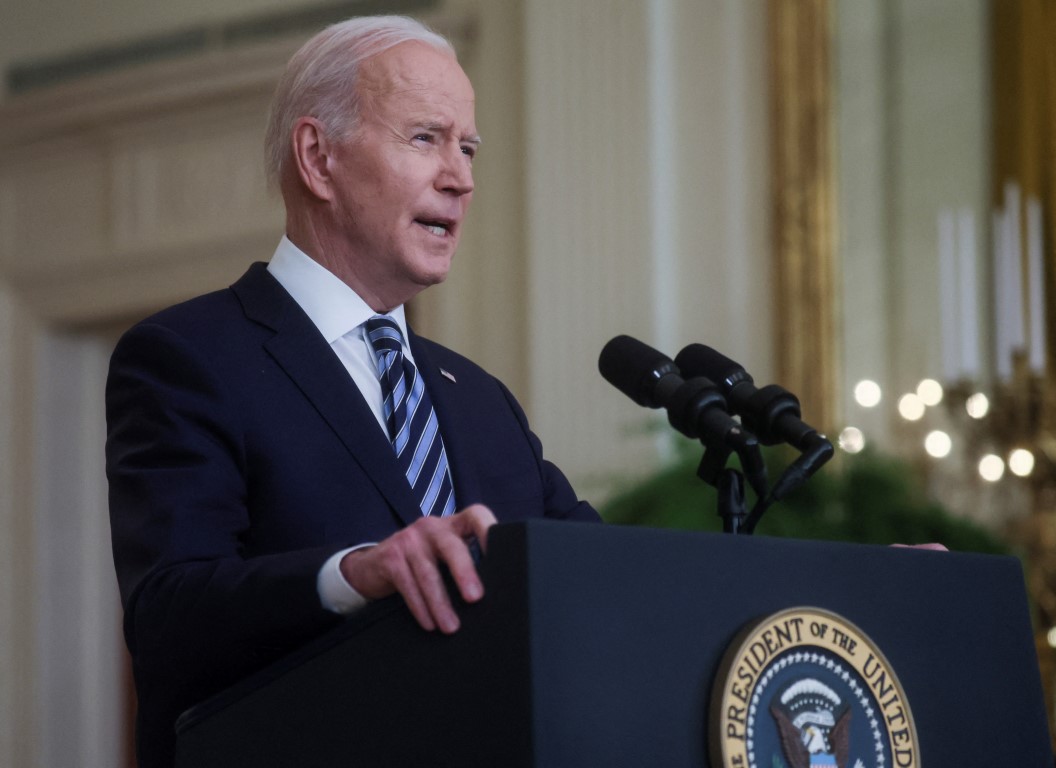
"This is a premeditated attack," Biden told reporters at the White House, saying Russian President Vladimir Putin rejected attempts by the West to engage in dialogue and had violated international law.
"Putin is the aggressor. Putin chose this war. And now he and his country will bear the consequences."
Biden said the sanctions were designed to have a long-term impact on Russia and to minimize the impact on the United States and its allies. And he said Washington was prepared to do more.
Biden said the sanctions would limit Russia's ability to do business in dollars, euros, pounds and yen.
Biden said Nato would meet on Friday (local time) to map out further measures. He reiterated that the United States would not engage in war with Russia, but that it would meet its Article 5 commitments to defend Nato partners.
Biden said this was a dangerous moment for all of Europe, and that he had authorized troops that had been placed on standby to deploy to Germany.
"Putin's aggression against Ukraine will end up costing Russia dearly," Biden said. "Putin will be a pariah on the international stage."
Biden met with his counterparts from the Group of Seven allies earlier on Thursday to map out more severe measures against Russia after Putin launched the attack.
Biden, who spoke with Ukrainian President Volodymyr Zelenskiy late on Wednesday, also convened his National Security Council on Thursday to discuss the situation.
His announcement represented the second major tranche of sanctions against Russia since Putin earlier this week declared two breakaway regions of Ukraine independent and sent troops there.
The United States had warned it would initiate waves of sanctions against Moscow if it further invaded Ukraine, and Russia's full-on military assault launched on Thursday led to the latest round of Western penalties.
Britain unveiled new measures targeting banks, members of Putin's inner circle and the very wealthy who enjoy high-rolling London lifestyles. Prime Minister Boris Johnson told parliament that leaders had agreed to work together to "maximise the economic price" Putin will pay.
On Wednesday Washington imposed sanctions on the company in charge of building Russia's Nord Stream 2 gas pipeline, and on Tuesday it sanctioned two large Russian financial institutions and Russian sovereign debt along with some members of the Russian elite and their family members.
The United States imposed the sanctions in cooperation with Western allies.
Biden had faced political pressure at home to impose sanctions before Putin invaded. The White House has held open the door to diplomacy, even agreeing in principle earlier to a summit between the president and Putin if Russia did not invade.
The president now becomes the face of the Western response to Russian aggression at a time when he is battling low poll numbers at home, rising inflation that could be exacerbated by the Ukraine conflict, and looming midterm elections that could hand control of the Senate and House of Representatives from his fellow Democrats to Republicans.
The White House has warned Americans that the conflict could lead to higher fuel prices in the United States, though it is taking measures to help soften that blow. US officials have been working with counterparts in other countries on a combined release of additional oil from global strategic crude reserves, two sources said on Thursday.
Biden warned oil and gas companies not to "exploit" this moment to raise prices.
Members of Congress from both parties urged the White House to move swiftly on tougher actions against Russia, including providing military aid to Ukraine, imposing stringent sanctions and export controls and ousting Russia from international organizations.
"This unprovoked attack has brought into sharp focus the need to expel the current Kremlin leadership from the international community," said SeNator Bob Menendez, Democratic chairman of the foreign relations committee.
"Today must mark a historical shift in how the world views and deals with the despot in Moscow."












